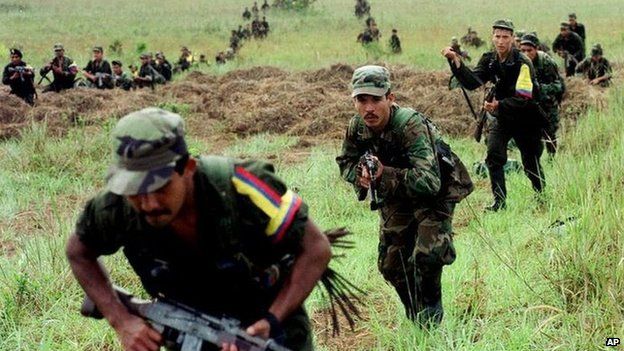Colombia landmines: Farc to help army clear minefields
- Published

Colombia's government and Farc rebels have agreed to work together to remove landmines in rural areas of the country where they have fought since the 1960s.
The announcement was made in Cuba, where both sides have been engaged in peace talks for more than two years.
Under the deal, Farc rebels will work alongside members of the military to remove the landmines and other explosive devices.
Colombia is one of the most heavily mined countries in the world.
More than 11,000 people have been injured or killed by landmines in Colombia over the past 15 years.
"The proposal for demining is a first step, but a giant step toward making peace," said Colombian government chief negotiator Humberto de la Calle.
'No weapons'
President Juan Manuel Santos welcomed the news, which gives his government's peace efforts another boost.
"I would like to congratulate our negotiating team and acknowledge what the Farc are doing, because this is bringing us closer to the shared objective of reaching peace in Colombia," he said.
The demining and decontamination operation will be overseen by experts from Norway, one of the countries that has been facilitating the peace negotiations.
The Farc members involved in the effort will not wear uniforms or carry weapons, said Mr De la Calle.
The operation was announced in a joint statement in Havana, marking the end of a round of negotiations that focused on the rights of victims.
Farc negotiators have been engaged in peace talks with the Colombian government since November 2012.
They have reached partial agreements on a number of issues, including on the drugs trade, land reform and political participation.
More than 220,000 people are estimated to have died in five decades of conflict.
- Published17 February 2015
- Published24 September 2015
- Published29 August 2013